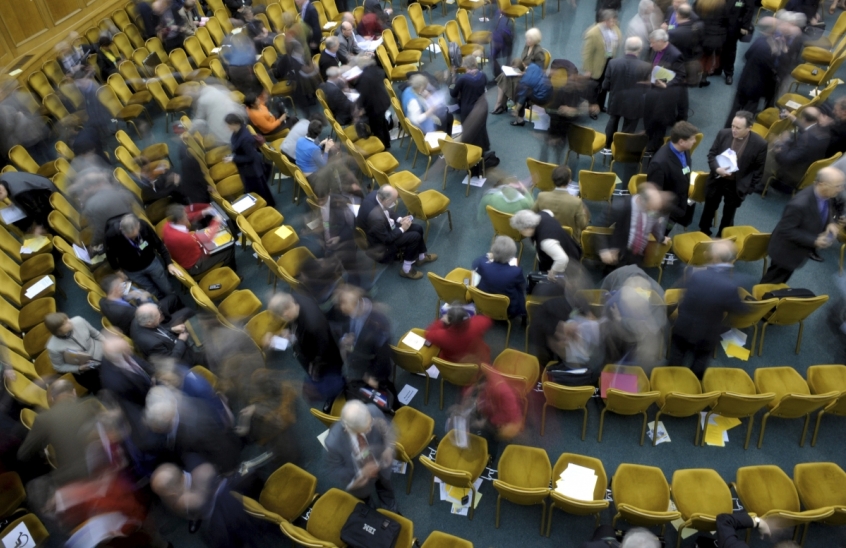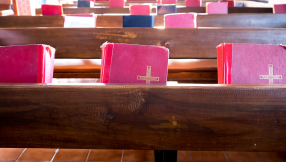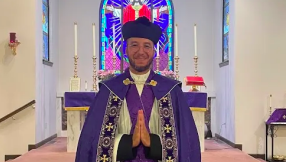
The Archbishop of Canterbury has appealed to Anglicans to set aside their differences as they come together to debate the issues facing the Church at Synod this week.
In his presidential address on day one, Archbishop Justin Welby urged Synod members listen to each other in love and 'recall that we are in the presence of Jesus Christ by his Spirit'.
He drew on 1 Peter as he said Christians were called to share the hope they have in Jesus 'with gentleness and grace' and not be like the surrounding culture where there is 'the absence of love, competition, no grace, no hope'.
'Communication is so very complex and whatever is said has also to be heard and whatever is heard is not always reflected on in the same way as the original speaker may have intended,' he said.
'Sometimes our passion and enthusiasm can be in danger of being misunderstood or can be mistranslated as synod has another debate on standing orders or we agree to set up a working group to bring forward a paper in order to set up a commission to investigate a problem which, in due course, will lead us to having a debate.'
He went on to say that the characteristic of speaking in love was that 'it recognises that its own interests are not the final word' and is instead marked by 'self-giving and self-sacrifice'.
He acknowledged that differing cultures and personalities could make this challenging and that 'a certain tribalism and club mentality comes so much more easily to each of us'.
But the Archbishop went on to say that such a mentality only hindered the Church's witness of the Gospel.
'To put it in the simplest terms, we must look like what we speak about,' he said.
At one point, the Archbishop paused his own address to ask that members of Synod turn to their neighbour and spend one minute sharing the joy of knowing Jesus with each other.
'I urge you to consider especially as members of General Synod giving up cynicism and renewing love for those with whom you and I differ,' he said.
'It is not easy. Some of them have views we find so obnoxious that we wish they were not in the church. We even convince ourselves that really, in God's mind, because he agrees with us, they are not with us in the church.
'Yet they and we are equally loved by God in Christ, equally sinners needing to repent, equally part of the body of Christ.
'So, let us hear a little of why each of us has hope in Jesus Christ.'
His appeal for love and grace comes at a time when members of the Church of England continue to wrestle with issues of human sexuality.
Recent guidance on services of welcome for transgender people have proved especially divisive, with over 3,000 Church of England clergy signing an open letter in opposition.
But divisions over sexuality permeate Anglicans far beyond the Church of England, which the Archbishop acknowledged as he reflected on the upcoming Lambeth Conference taking place in Kent next year.
Orthodox Anglicans have threatened to boycott the once-a-decade conference over the liberalising actions of some parts of the Anglican Communion, including North America.
1 Peter is also the section of the Bible that has been chosen to guide theological deliberations at Lambeth 2020.
Archbishop Welby told Synod the conference was about uniting Anglicans in love and the service of God.
'Next year, at the Lambeth Conference, the theme will be God's Church for God's World. The conference seeks to unite all who come in turning outwards to the world around and in love and passionate discipleship to seek to serve the mission of God, to share in the work of God in His world,' he said.
'The biblical book of the conference will be 1 Peter. I am therefore at present spending a significant amount of my own prayer and study time reflecting on this letter in the New Testament.'













